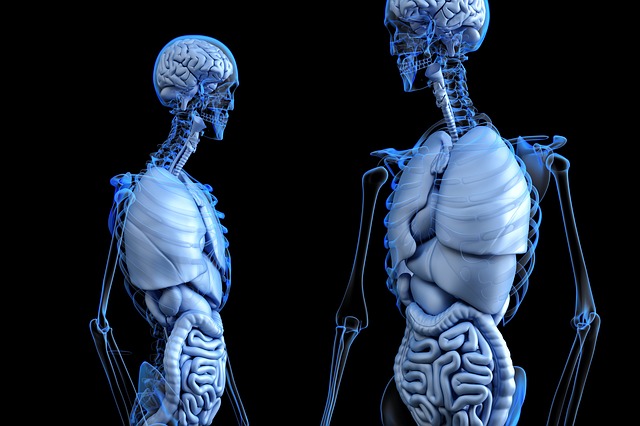You have been diagnosed with celiac disease, now what?! Unfortunately, many patients get a diagnosis and may or may not get any additional information, including ongoing follow up information. This is especially frustrating, considering that celiac is a life-long diagnosis and it doesn’t go away.
Where to Begin
I strongly recommend educating yourself. You are your number one and best advocate for your health! I totally believe that knowledge is power! Make sure you seek out reputable and good sources for information. There is a LOT of misinformation available.
Many patients know more about their disease and what needs to be done, than their doctor does. If you have a doctor who won’t listen or do research, find a new doctor who will.
Resources:
Here are some of my favorite resources for information:
- Celiac Disease Foundation
- Gluten Intolerance Group
- Gluten Free Watchdog
- Beyond Celiac
- Cure Celiac Disease (University of Chicago Celiac Disease Center)
Malnutrition
Celiac beats up your gut! It is not kind to your GI track and that can lead to issues throughout your body. When you can’t properly absorb vital nutrients, any part of your body can be affected. Likely, you have some degree of malnutrition and are lacking in many vitamins and minerals.
This is one reason why there are so many different symptoms for celiac disease. I strongly believe that you develop symptoms according to what you can or rather can’t absorb, as well as, where your body has a weakness.
Vitamins and Minerals
Get a good multi-vitamin. Vitamins do NOT fall under the gluten free labeling laws. Therefore, they do NOT have to list gluten ingredients on the label. Above all else, make sure you are choosing a gluten free vitamin. There are some companies that label and market gluten free vitamins, but it is always a good idea to contact vitamin companies and ask. Gluten is used as a filler ingredient, when it is in vitamins or medications.
Currently, our family is using Smarty Pants Vitamins. They are gluten free and they use folate instead of folic acid. Many people with celiac also have the MTHFR gene mutation. It is a good idea to see if you have this mutation. If you do, it means your body can’t use folic acid properly and folic acid can be toxic to your body.
Medical Internist
Many people find it helpful to see a medical internist who can do blood work and help you improve your vitamin and mineral levels. Your body may have been depleted for a long time, even years and it is going to take work to get you to the right levels.
*At the bottom I have a list of vitamins and minerals (this may not be a complete list) that should be checked. There is a quick reference for follow up tests, as well.
My Experience
Because of my experience I recommend giving your body 6 months to a year to stabilize with your new diet, before going to a medical internist. *Use your best judgment. Everyone is different.
I went to a medical internist, within just a few months of going gluten free and my blood work was crazy out of whack! I ended up being checked for cancer every month, because it was so odd. It was so stressful worrying about whether I had cancer or not.
I wish I had waited until I was stable with the diet and getting the nutrition I needed. Then, it would have been easier to see where I was still struggling with nutrition. As well as, where I was struggling with other health issues. Instead it was a lot of unnecessary worry.
I had also developed a rare skin condition which added to my doctor’s worry about cancer and other illnesses. This skin disease showed up just a few months before I was diagnosed with celiac. I believe my biggest weakness has been with my skin: eczema, hives, and now, reticulated papilamatosis. (Getting to the right dermatologist helped!)
Bone Health
The bones are of concern and many people with celiac have low bone density. This is often thought of as an old persons problem, however, many with celiac have bone loss at a young age due to not properly absorbing vitamin D and calcium.
It is a good idea to get a dexa scan, so you have a base line for future reference. I had mine shortly after I was diagnosed and when I had a follow up, 3 years later, it showed improvement. It wasn’t bad to begin with, but I was excited that there was improvement. The only things I had done: go strictly gluten free and take vitamin D.
Follow Up Testing with your GI
You will likely want and need more than one doctor. A GI specializes in your gut and doesn’t know as much about the other systems. I needed a medical internist and a dermatologist. Also, I worked with a pulmonologist for my mild asthma. (She told me that many with celiac have some degree of asthma because too much enters the blood stream, that shouldn’t be there and is hard on the lungs.)
3-6 months
The Celiac Disease Foundation and the University of Chicago Celiac Disease Center recommend patients see their doctor within 3-6 months after diagnosis to check on adherence to the gluten free diet, talk about on-going symptoms, struggles, and any new symptoms. Patients should also have a follow-up blood test to check the celiac panel.
Your numbers should be decreasing or come back as negative. Negative is normal when eating a strict gluten free diet. *It does NOT mean that you no longer have celiac disease! It means your body is no longer reacting to gluten, because gluten has been removed and the disease is halted. In other words, your body has quit attacking itself.
A Year After Diagnosis
It may take a year or more for the tests to come back negative. The celiac panel should come back negative, when the patient is following a strict gluten free diet. If it doesn’t, it usually means that the patient isn’t following the gluten free diet well. This can either be on purpose or not realizing they are ingesting gluten through cross contamination, medication, vitamins or eating something they don’t realize contains gluten.
Additional GI Follow-ups
Every 2-3 years a bone density scan should be done, especially if it was low. If you have a good scan your doctor may recommend waiting 5 or so years, before doing the next one. Of course, age as well as, original results of the first bone scan, are factors in how long between scans may be recommended.
Many doctors will want to do a follow-up biopsy 3-5 years after diagnosis to access compliance to the diet and healing of the gut.
Quick Reference for Vitamins, Minerals, and Follow Up Tests
Many of these recommendations come from Beyond Celiac
Anemia- iron levels
B12, B6, folate, thiamin, riboflavin, niacin
25 Hydroxy vitamin D
Calcium, Magnesium
Copper, zinc, selenium,
Thyroid Panel– *make sure it is complete with total T3 and Free T3 and antibodies (the antibodies tell you whether it is auto-immune or not)
Lipid Profile- measures your fats and cholesterol
Electrolyte and renal profile- How well are your kidneys working
Metabolic Panel- (especially important for checking the health of your liver)
Complete blood count- which gives your doctor a good idea of how well your body is functioning and can alert to other issues.
*Know what related diseases and conditions often go along with celiac in order to be aware of symptoms and other tests needed. (Thyroid and Diabetes are the most common, but there are others.)
Good luck in your journey to better health!
What other follow-ups have you and your doctor found to be helpful?









Leave a Reply
Your email is safe with us.